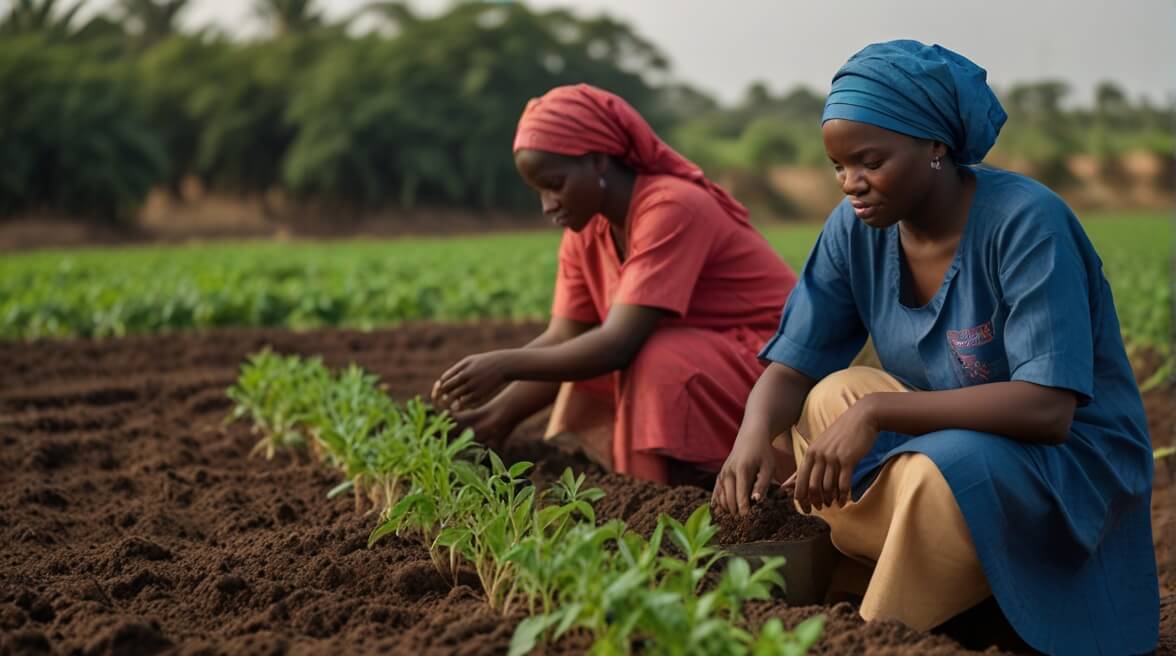Agriculture plays a pivotal role in Nigeria’s economy, and women are integral to its success. Despite facing numerous challenges, including limited access to land, finance, and technology, female farmers contribute significantly to food production and the agricultural sector.
Empowering these women is crucial for achieving food security, enhancing economic development, and ensuring gender equality.
This article explores the importance of empowering female farmers in Nigeria and the impact it can have on the nation.
1. Bridging the Gender Gap in Agricultural Resources
One of the first steps in empowering female farmers is addressing the gender gap in access to agricultural resources. Women often face hurdles in acquiring land and securing loans, which limits their productivity and income. Initiatives aimed at providing equal access to land, capital, and inputs such as seeds and fertilizers can dramatically increase their yields and economic independence.
By implementing policies that recognize women’s rights to land and offering financial services tailored to their needs, Nigeria can harness the full potential of female farmers.
2. Leveraging Technology and Training
Utilizing technology and providing education and training are crucial for enhancing the skills and productivity of female farmers. Access to modern farming techniques, digital agricultural services, and market information can transform their agricultural practices.
Programs that offer training in crop management, sustainable farming practices, and business skills empower women to make informed decisions, improve their farms’ sustainability, and increase profitability.
3. Strengthening Women’s Participation in Agricultural Value Chains
Empowering female farmers also involves enhancing their participation in the entire agricultural value chain, from production to marketing and sales.
Creating platforms for women to sell their produce directly to consumers or engage in agribusiness can open new income avenues.
4. Addressing Social and Cultural Barriers
Social and cultural norms often restrict women’s access to resources and opportunities in agriculture. Addressing these barriers through community education and advocacy is essential for empowering female farmers.
Programs that challenge traditional gender roles and promote women’s leadership in agriculture can lead to more equitable community development and enhance women’s contributions to the sector.
5. Enhancing Food Security and Nutrition
Women play a key role in household food security and nutrition. Empowering female farmers increases the availability of diverse and nutritious foods, improving family and community health.
Women’s knowledge of nutrition can be leveraged to grow a variety of crops that enrich the diet, reduce malnutrition, and build resilience against food shortages.
Conclusion
Empowering women in agriculture is a necessity for national development in Nigeria. By providing female farmers with access to resources, technology, training, and markets, Nigeria can boost agricultural productivity, improve food security, and stimulate economic growth.







Leave a comment